
We kindly inform you that, as long as the subject affiliation of our 300.000+ articles is in progress, you might get unsufficient or no results on your third level or second level search. In this case, please broaden your search criteria.

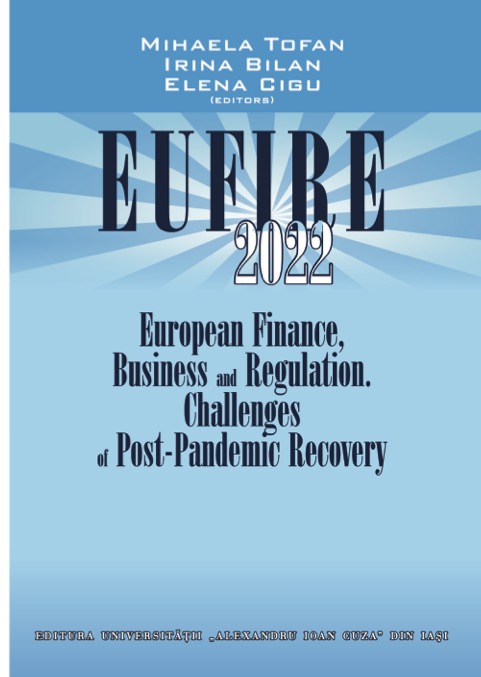
Performance is one of the main indicators that explain the level of development of a company. Also, performance is one of the most important variables and will always remain a fairly discussed and constantly evolving topic. Performance has evolved towards a global approach that includes certain financial and non-financial factors with an impact on the value of a company that refers to elements of social responsibility. Non-financial indicators are considered to be more forward-looking, better able to predict future performance, more suitable for measuring intangible assets and less likely to be manipulated than financial values. The performance measurement system, including non-financial indicators, provides a more comprehensive picture of performance factors as it measures areas of performance beyond financial results. When we refer to non-financial performance, it refers to the result of a company's efforts in terms of customer satisfaction and loyalty, working conditions and employee satisfaction /retention, product /service quality, overall company quality, market share, productivity and innovation, as well as environmental and social issues. Thus, a company that is sustainable will have to focus on those sustainable business practices based on the above mentioned aspects, which will contribute to the creation of long-term value, value of the company brought by social, environmental and economic factors. The proposed objective of this paper was to highlight the importance of non-financial performance factors in the sustainable value creation system of companies and their analysis based on a representative sample of companies in the financial industry listed on the BSE, an investigation of the situation of the companies in this field of activity involved in the objectives of sustainable development is also carried out.
More...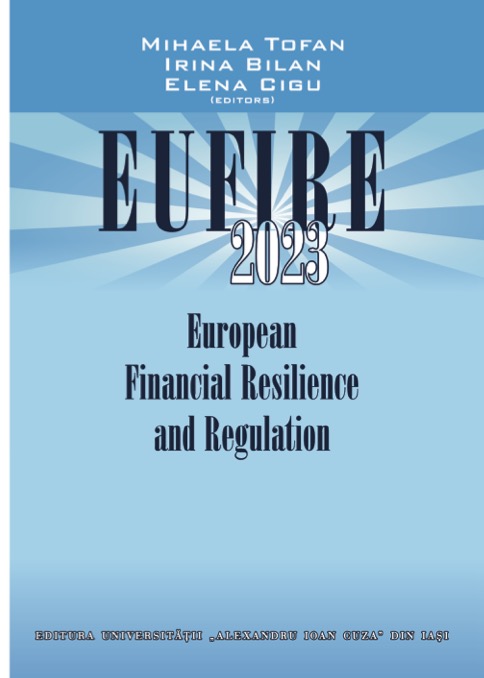
Companies whose core business contributes to social grievances or impacts the environment, put their reputation, bottom line, and stock market value at risk, and in extreme cases even threaten their very existence. Studies have shown that environmental and social issues are now significant "non-financial" aspects with an impact on a company value. Dialogue with stakeholders to achieve or improve sustainability performance is an increasingly important factor affecting the risk-opportunity constellation and influencing access to capital and the cost of capital. Therefore, transparency on sustainability factors is increasingly emerging as a success factor in corporate finance. There are different terms around corporate responsibility: Corporate Sustainability (CS), Corporate Social Responsibility (CSR), Corporate Sustainability Reporting (CSR-D), Corporate Citizenship (CC), Environment Social and Governance (ESG), Corporate Social Initiatives (CSI), or simply non-financial (NF). In the absence of internationally uniform definitions, there are even more interpretations of what they entail. A directive of the European Union from June 2022 regarding corporate sustainability reporting obligations might lead to a more standardized way of non-financial reporting methods internationally. This study explores the question of what the above-mentioned concepts mean in terms of content, how they differ and where the respective focal points lie. The aim is therefore to identify the scientific literature indexed in Scopus with the help of a bibliometric analysis as well as to analyze it to identify the most important topics and their weighting on economic sustainability. Another objective is to understand the conceptual structure of the different concepts and to identify the knowledge base for their use in core economic business, i.e., to determine how they are currently used. The originality of this research is that our approach is unique now and the assimilation of the above concepts is a very clear sign of manifestation for sustainable business.
More...
Phishing attacks pose a significant threat to individuals and organizations, and their accurate and effective detection is crucial to preventing data breaches and financial losses. With the increasing use of email as a communication channel, phishing attacks have become more widespread and sophisticated. Our study addresses the use of machine learning-based models to detect phishing emails by analyzing the text of the message. A characteristic of the study is given by the fact that it uses a dataset composed of private emails in Romanian, obtained from public institutions in the field of health. Since the models were applied to the text, natural language processing techniques specific to the Romanian language were used to extract the features. The results obtained highlighted that some models outperform others in terms of accuracy, underlining the importance of choosing a machine learning approach for phishing detection in a given language. The conclusions of this study can support research for the development of effective phishing detection tools for Romanian-speaking users and organizations.
More...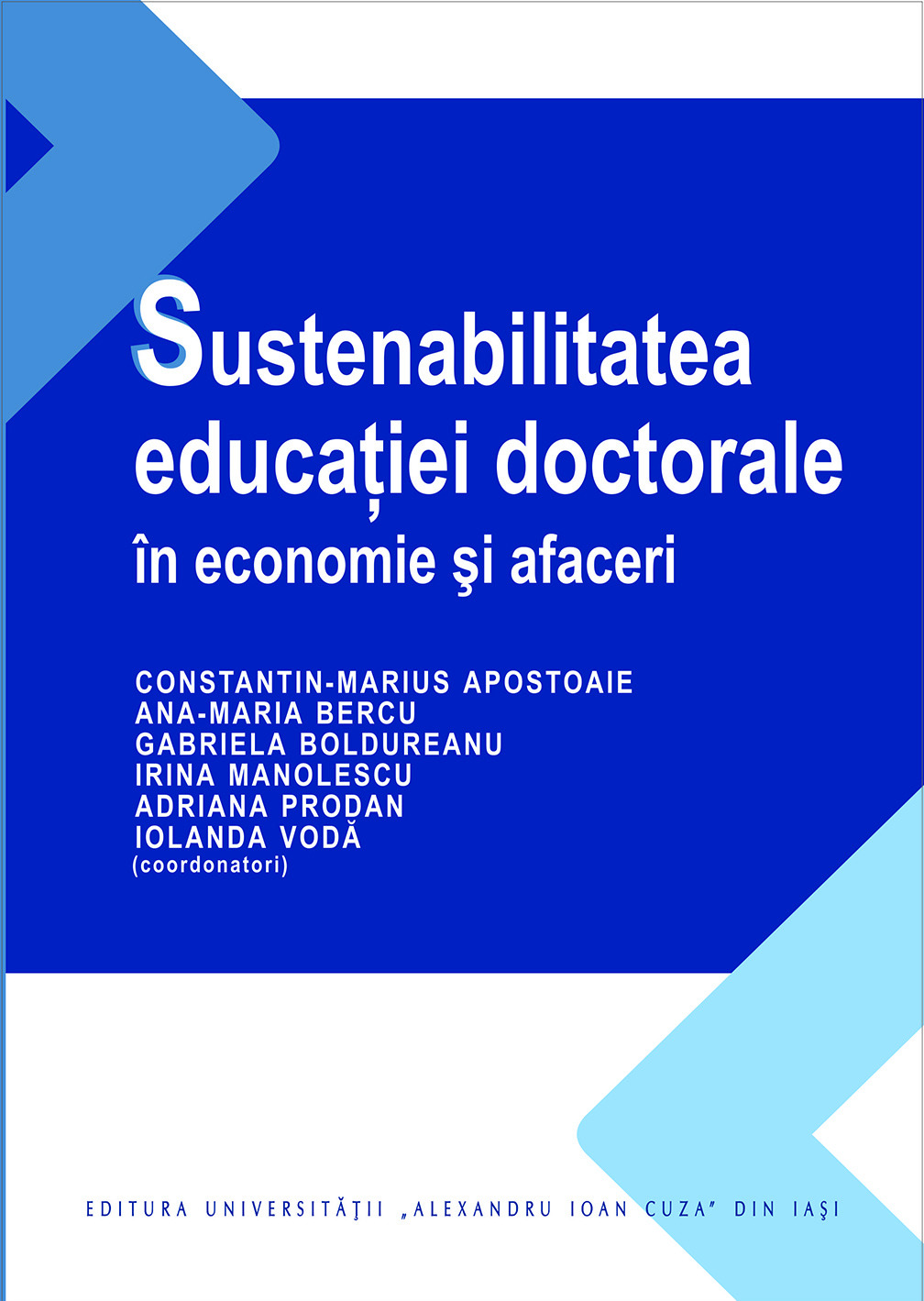
As an integrated part of management, leadership carries a lot of weight with how changes are put into effect in the organisational culture spectrum. Given the role of leadership in the organization, we can say that it is the main driver of change, which, in its essence, changes the dynamics when it comes to the intrinsic motivation of personnel. This research analyzes the main types of leadership and their dominant features. It also follows the effects generated by the utilization of different types of leadership within the companies. Consequently, we determined that by introducing women who promote the transformational leadership style into the leadership structure, major and rapid changes are generated in the sphere of organisational culture in order to increase the results obtained.
More...
The war for talent is a reality of the business context that companies are currently facing. This competitive environment has led organizations to assume the need to implement strategies to improve quality of human resource management, which is also true for those companies at the beginning of the road. This study aims to analyze the means by which young entrepreneurs can create an employer brand. The research methodology is based on a qualitative approach, based on the analysis of the literature and online documents on the websites of representative companies from America. Thus, in order to create a strong employer brand, it is important first of all, to know the challenges that arose in the process of creating it. After completing this step, an employer brand can be built by defining the vision and purpose of the start-up, defining the core values and the starting culture of the company, completing the EVP (Offer of value to the employee) with the vision, mission and the culture of the organization and the promotion of the employer brand in the online environment
More...
The aging population and older entrepreneurs represent society’s greatest demographic and social changes. The older population today is much more vital and educated, and they have more community-funded educational opportunities than in the past. Their experience from previous jobs and the expertise they have gained throughout their working lives give them a boost and a belief in success. Although researchers are interested in this topic, there is a lack of an overview of the work published over the past decade and guidelines for future research. This paper aims to identify and systematize the knowledge of scholars who have researched entrepreneurship among older adults using mixed methods that will provide a complete picture of this topic. One of the assumptions in this paper was that the primary goal of market implementation of an entrepreneurial idea among older people is usually not related to earnings but to the need to continue being useful to their family and society. Some start their entrepreneurial activities later because they finished their professional career earlier or are unemployed. However, some want to realize their dreams that they could not have realized during their working life. The study’s limitations are a small number of papers published on this topic and the availability of the papers, as many of them are not freely available.
More...
As the global population is aging and there are no signs of a trend reversal, research on senior entrepreneurship is emerging and becoming more eminent in scientific literature. On the practical side, policymakers are attempting to better utilize the under-represented senior entrepreneurs for economic growth and development. One promising way to achieve this goal is to better understand why some senior entrepreneurs establish and manage high-technology firms. On such a basis, several studies have been published that represent the first steps toward understanding such a complex matter. This chapter is part of the research stream that explores the relationship between senior and technology entrepreneurship. It does so by looking at the specific entrepreneurial context present in Slovenia and Croatia. Using the Global Entrepreneurship Monitor survey data, ordered logistic regression analysis shows that senior entrepreneurship is not a significant antecedent of technology entrepreneurs. In addition, among the significant predictors, managerial skills and fear of failure have discrepant effects on technology entrepreneurship. Despite the inherent limitations of the dataset, the general conclusion about the importance of context in the development of senior entrepreneurship and technology entrepreneurship is valid. Subsequent research can test the hypotheses presented in this chapter in other contexts and develop theories about why the observed effects differ from a macro and micro perspective.
More...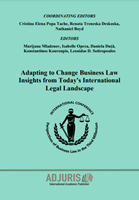
The company good management by its directors provides a high operational stability during the course of its activity, which consequently will find reflection in its profits. In this managing process, directors often have to face with situations, where the consequences of their actions cannot be clearly and unambiguously predicted, and decisions taken are risky. These decisions, in the best scenario, may generate profits but can also lead to unfavorable consequences for the commercial company itself and third parties involved in relations with this commercial company. To minimize these risks, the legislator have to clearly define the duties and responsibilities of the company directors. The latteris one of the legal instruments that serves to coordinate the interests of the directors with the interests of the corporation, its shareholders and third parties. In the present paper, through a legal assessment, special attention has been paid to the consequences for the breach of company directors’ duties in the US perspective, which are divided into three categories: responsibilities towards the corporation, shareholders and third parties. Due to the fact the jurispudence and specifically the courts of Delaware in the USA has played an important role in the resolution and interpretation of issues related to directors duties and responsabilities, which were not dealt with in detail in the legislation or corporate acts, this paper will be focused also in one of the most important institutes of American law- “business judgement rule”, which was created by the courts in defense of directors rights. The main aim of this paper is to analyze the US doctrine, legal provisions, which regulate the company directors’ responsibilities, as well as the court practice in this regard. Also, an important objective of this paper is that it may serve as an important basis for further comparative studies in this field with other jurisdictions. Such analysis is based on the qualitative method, which contains also the research, analytical, descriptive, interpretive methods. The result of this paper will stimulate debate in the academic level and contribute to further improvements of our company legislation, as well to the legal doctrine in Albania that lacks such.
More...
The repeated and substantial modification of the Companies Law no. 31/1990 led us to analyze this normative act in more depth, the most important in the field of commercial law, we could say. It is obvious that the evolution of society, of the business environment, of the way of operating a company, imposed the latest changes in the company law. The present study aims to analyze only one of the associative forms regulated by this law, namely, the limited liability company, the most common type of company in Romanian and international practice. The paper will address these changes and will offer pertinent opinions regarding the practical and theoretical usefulness of the changes, will try to present a critical opinion regarding the latest changes made to the legal regime of the limited liability company. In carrying out the scientific approach, we will consider the legal provisions, as well as the new doctrine created up to this point in Romanian law. We will use appropriate methods of interpreting the provisions of Law no. 31/1990, respectively the grammatical, historical method, as well as the logical method, with the corresponding interpretation arguments.
More...
This topic has been discussed intensively among scientists, workers, consumers, in church circles in the last 20 years. Mostly from the available research it can be seen that the Republic of Croatia is the country where most people want to have a non-working Sunday. At the same time, the question is whether all workers can protect themselves from work on Sundays. So, one part of workers has to work on Sundays. While in the Republic of Croatia we are only at the very beginning of solving this problem, many countries have already addressed this issue. The paper will show how the EU countries have resolved this issue. The EU trend is greater liberalization of work on Sundays. There are several hypotheses in this paper: Hypothesis 1 – work on Sunday is negatively related to the quality of health, Hypothesis 2 – work on Sunday is positively related with conflicts in family relationships. The research carried out in Eastern Slavonia on a representative sample and results obtained by on-line survey method, method of systematization, method of analysis and synthesis, historical method and comparative method should not only remain a dead letter on paper, but the competent institutions and professional public should create a legislative framework and apply the results in practice as a basis for the protection of workers.
More...
The restructuring agreement procedure is one of the latest mechanisms available to viable debtors to prevent insolvency. The agreement between the debtor and the creditors holding the claims affected by the plan is made through the restructuring administrator and is confirmed by the confirmation of the syndic judge. The modified receivables will be paid according to the agreement, the rest of the debts will be paid under previous contracts, but only after priority payment of subsequent financing. Outstanding contracts will continue to be executed during the implementation of the recovery plan. The debtor retains the right to manage his business but will have to restructure his activity according to the plan. The restructuring manager shall ensure that the measures set out in the plan are implemented. Amendments to the restructuring agreement may be ordered if the creditors' challenge is upheld. If the provisions of the plan are fulfilled, the procedure will be closed by decision of the syndic judge, the debtor's debts will be written off according to the agreement. In case of non-fulfillment of the provisions of the plan, the procedure ceases, but the claims terminated by the agreement will be reborn.
More...
The concept of debt mass formation in the literature is not clearly defined. The content of this concept is usually revealed by analysing the algorithm of actions and measures of the insolvency court, the administrator/liquidator in order to form the debtor's estate. As the first basic stage, the formation of the debtor's estate is of great importance and of maximum interest to creditors. It is in fact the preparation for the subsequent implementation of bankruptcy proceedings, liquidation of the insolvent debtor or the establishment of the debtor's solvency. The aim of this paper is to carry out a complex theoretical and practical study of the peculiarities of measures to secure and protect the assets of the insolvent debtor. In order to achieve the proposed aim, the following objectives are envisaged: identification of the general considerations of the debtor's estate, the concept of protective measures, identification of the procedural phases of application of protective measures, the importance of preliminary protective measures. The following research methods have been used in the study comparative method will be used to observe and highlight the commonalities and differences (where they exist) between the international regulations of the institution of personal bankruptcy to show how the various particularities are reflected in practice on the beneficiary respectively the legal person. In the course of the research, we will use both the deductive and the inductive method in order to ensure, on the one hand, the achievement of the general objective of formulating new concepts and theories concerning the chosen legal institution and, on the other hand, the identification of problems of application of the normative provisions and of the gaps in the legislation. By means of the logical method used in the research I aimed to demonstrate that only by starting from existing principles can deductive reasoning be leveraged from the general to the particular or singular. The main research tools used to carry out the scientific approach were the scientific publications in the field of bankruptcy, the normative acts in force, the relevant judicial practice. The expected results automatically represent the fulfilment of the objectives and the answers to the research questions. Provisional measures taken by the insolvency court, administrator/liquidator are intended to prevent the insolvent debtor, during the course of the insolvency process, from destroying, disposing of assets or ineffective administration of assets. Their importance lies in the fact that by applying these measures the rights of the participants in the insolvency proceedings are protected.
More...
The aim of the paper is to examine some of the issues related to family businesses in Hungary. Family businesses are a popular topic in both international and domestic economic literature, but the legal aspects have been less studied, and there has been no legislation or legal definition in Hungary. The study was primarily based on the relevant literature, together with the relevant legal sources. My main insight is that the various factors identified in the economics literature, which have been used in research, also serve as a valuable basis for the law, but it is important to place these factors in the appropriate civil law context. This is what this paper attempt to do, by providing a comprehensive concept that could also serve as a starting point for legislation.
More...
In order to provide a better legal understanding of how other forms of legal liability collide with disciplinary liability - a form of liability specific to labour law - this article will examine, on the one hand, the specifics of domestic regulations on the possibility of combining the employee's disciplinary liability with other legal forms of liability, and on the other hand, the evolution of case law in the field of disciplinary liability which, as we shall show, profoundly influences the way in which legal texts are interpreted and applied.
More...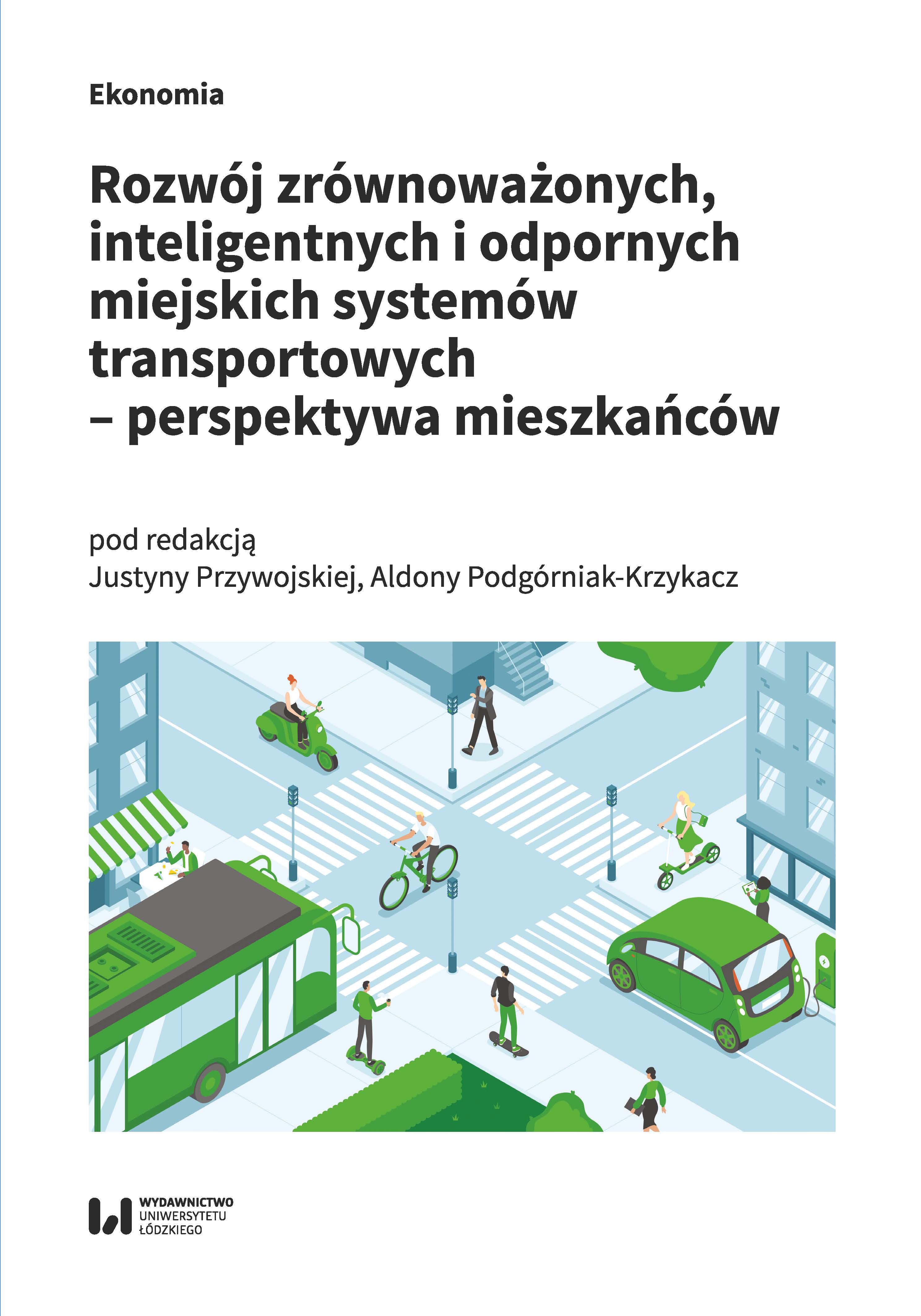
The main objective of the study is to present the benefits and opportunities arising from the presence of Intelligent Transport Systems in Łódź. The first part of this chapter explains the concept of Smart City and its essence in the modern world. Then the question of Intelligent Transport Systems and their development path was raised. The empirical part presents modern transport systems introduced in Łódź and the effects of their application. The results of a survey conducted on drivers moving around Łódź and people using local public transport were also taken into account.
More...
Planning is a process that includes the selection of tasks and goals and actions for their realization and requires decision-making, i.e. a choice between alternative future courses of action. Planning is a method of shaping our desires. Nowadays, planning is considered to be the dominant instrument of management. It represents forward thinking. Given the fact that thinking is a spiritual process, planning as such is defined only as a process or function. However, when it comes to small and medium-sized enterprises (SMEs), this process has certain specificities, which primarily stem from the advantages and disadvantages of small and medium-sized enterprises. Bearing in mind that today's markets are dominated by SMEs, this paper deals with their specificities, with an emphasis on the specificities of planning as the basis of the management process.
More...
E-money is the newest payment instrument. As part of the new electronic payment system, which will surely become a substitute for traditional payment in the future, electronic money is raising more and more interest in its implications for the further development of banking functions in the global and networked economy. Statistical evidence confirms the existence of electronic money is more pronounced in developed countries, which is understandable due to their high technological level, and knowledge and ability to absorb useful innovations of any kind. However, although electronic money has been present in certain markets for more than 20 years, its use is still at a generally low level globally. For this reason, this paper deals primarily with the characteristics and possible uses of electronic money, but with an analysis of the factors that influence its mass acceptance, that is, its use as a payment instrument.
More...
This chapter by Claudia-Veronica Ungureanu and Alina-Florentina Saracu discusses the importance of green technology in addressing global challenges such as climate change, population growth, environmental pollution, and the depletion of natural resources. It emphasizes the role of green technology in sustainable development, highlighting its benefits for the environment, economy, and public health. The chapter explores various green technologies, including renewable energy, green building construction, and sustainable agricultural practices. It also examines the potential of green technology to improve the quality of life, reduce greenhouse gas emissions, and promote economic growth through innovation and investment.
More...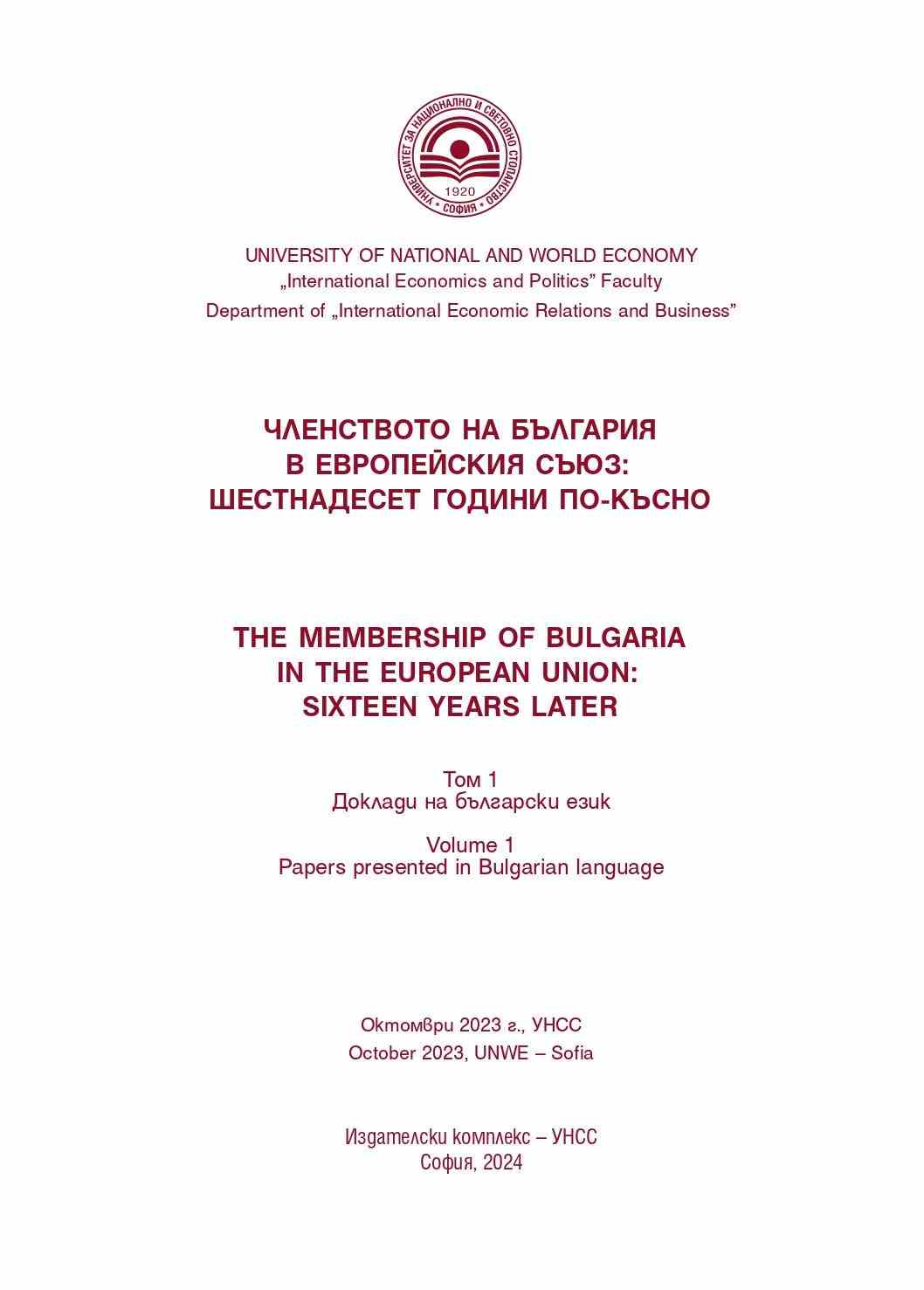
Creative entrepreneurship provides a number of economic and social benefits. These undisputed findings are generating significant interest and policy formation to support it. In addition to an increase in the number of enterprises in the creative sectors, there is an enlargement in the employment they create, their turnover and the generated added value. At the same time, creative entrepreneurship has strong social effects. Some of the activities in the creative industries have a very important social meaning, related to education and culture, building national self-esteem and a sense of belonging. In recent years, social entrepreneurship, whose expression is often related to creative activities, has been studied very intensively. For this reason, the focus of this publication is the study of the economic-social dimensions of the created and developed businesses in the sectors of the creative economy. Conclusions are formulated that direct attention to key aspects of the issue under consideration.
More...